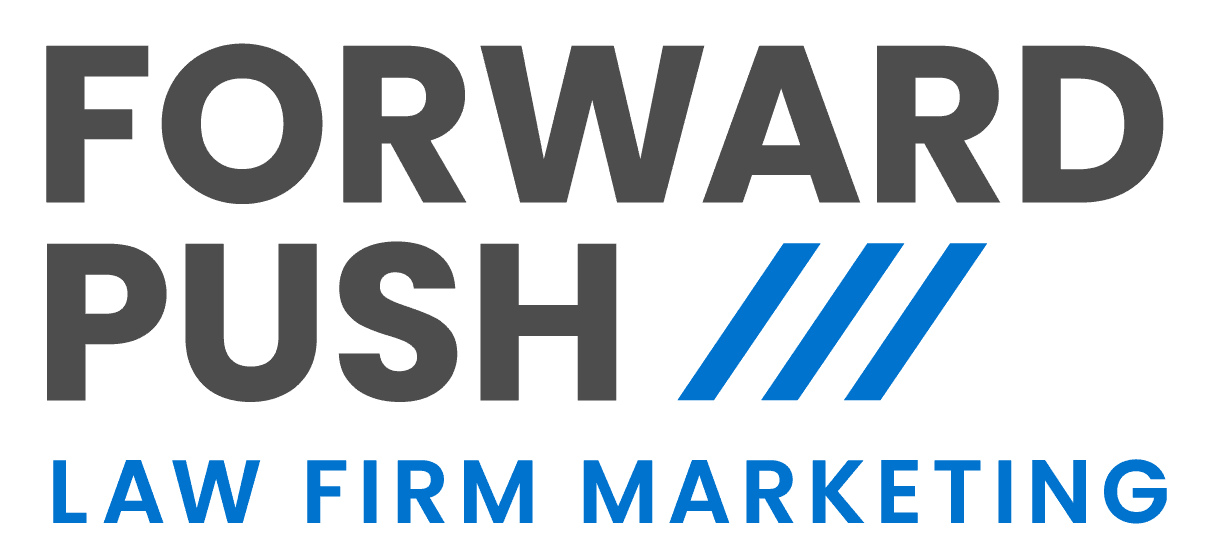By Marc Apple ● ● 5 min read

Table of Contents
TL:DR High-converting landing pages are essential for turning paid traffic into real clients by aligning with user intent, optimizing for mobile, and reducing friction in lead generation. Law firms should focus on clear CTAs, social proof, and fast-loading pages to maximize conversions and ROI.
No time to read? Listen to a conversation about this blog post instead.
If your law firm is investing in Google paid search ads but struggling to convert traffic into clients, the issue may lie with your landing pages. Optimized landing pages are a crucial component of a law firm’s online marketing strategy, especially in a highly competitive industry. Understanding how to refine them can significantly improve your return on investment (ROI) and lead generation.

Optimized landing pages are a crucial component of a law firm’s online marketing strategy
Understanding the Power of High-Intent Legal Searches
When potential clients search for legal assistance online, they often need immediate help—whether due to a car accident, business dispute, or another pressing issue. This urgency presents a unique opportunity for law firms. However, competition for legal keywords is intense, making it essential that your landing pages not only attract visitors but also convert them effectively.
The Importance of Custom Landing Pages
A common mistake law firms make is directing paid ad traffic to their homepage rather than a dedicated landing page. A homepage is often cluttered with multiple calls-to-action, service pages, and non-essential content that can distract visitors.
In contrast, custom landing pages are designed to streamline the user experience, ensuring that every element is aligned with the ad that brought the visitor there.

While forms are useful for capturing leads, relying solely on them can result in lower-quality inquiries
Key Elements Above the Fold
Research from the Nielsen Norman Group indicates that users spend 80% of their time looking at content above the fold, reinforcing the importance of placing critical elements where they are immediately visible. To maximize conversions, your landing page should prominently feature the following elements above the fold:
- A clear and concise headline addressing the user’s specific legal need.
- A direct call-to-action (CTA), such as a click-to-call button for immediate engagement.
- Minimal text, focusing on the user’s pain points and how your firm can help.
- Fast-loading design, ensuring no delays in presenting key information.
Optimizing Form Submissions for Better Lead Quality
While forms are useful for capturing leads, relying solely on them can result in lower-quality inquiries. Many potential clients submit forms but are not ready to take action. Instead, prioritizing direct communication—such as a phone call—can lead to more meaningful conversions. Testing different approaches, such as removing form submissions on mobile landing pages, has been shown to increase lead quality.

An ABA study found that 64% of respondents use Google to search for attorneys
Mobile Optimization and Page Speed
A significant percentage of legal searches originate from mobile devices, making mobile optimization a critical factor in user experience and conversions. According to the American Bar Association’s 2023 Websites & Marketing TechReport, 74% of law firms reported having mobile-friendly websites. Additionally, an ABA study found that 64% of respondents use Google to search for attorneys, reinforcing the necessity of a strong online presence.
Key mobile optimization strategies include:
- Reducing page load time to under three seconds.
- Using a clean, simple design that enables visitors to contact your firm without unnecessary scrolling.
- Minimizing form fields to encourage quick and easy engagement.
- Ensuring click-to-call functionality for immediate consultation requests.
Keyword-Specific Landing Pages
Each ad should direct users to a landing page that matches the specific keyword intent. For example, a personal injury law firm targeting ‘car accident lawyer’ should have a dedicated landing page discussing car accident claims, common injuries, and how their attorneys assist clients in such cases. For example:
- A user searching for “business partner dispute lawyer” should land on a page that explicitly discusses business disputes—not a general business law overview.
- Using dynamic content insertion can help personalize messaging, reinforcing the user’s search intent.

Minimizing form fields to encourage quick and easy engagement
Implementing a Negative Keyword Strategy
A well-implemented negative keyword strategy prevents your law firm’s ads from appearing in searches that do not align with your services, helping you filter out unqualified leads and maximize ad spend efficiency. For example, a personal injury law firm may exclude keywords like “free legal advice” or “public defender” to filter out unqualified leads.
Outcome-Based Copywriting
Legal landing pages should not just list services; they should address the potential client’s concerns and desired outcomes. Effective copywriting should:
- Highlight the benefits of working with your firm.
- Address common fears (e.g., “How will I afford legal fees?”).
- Provide reassurance that your firm can achieve favorable results.
Leveraging Social Proof for Credibility
Research shows that potential clients look for online reviews and ratings before selecting a law firm, making social proof a key component of digital marketing success. Displaying verified Google reviews, case results, and client testimonials not only enhances credibility but also reassures potential clients that they are making the right choice by selecting your firm. Incorporating video testimonials or third-party ratings (e.g., Avvo, Martindale-Hubbell) can further enhance trust.
Streamlining the Lead Process
To maximize conversions, minimize unnecessary steps between the visitor’s first interaction and scheduling a consultation. Strategies include:
- Avoid excessive form fields that discourage lead submission.
- Offer instant scheduling via call or text.
- Use automated chat features for real-time engagement.
Strengthen Your Law Firm’s Digital Marketing Strategy
In a competitive digital landscape, well-optimized landing pages are essential for converting high-intent legal searches into real clients. By focusing on custom landing pages, mobile-first design, and data-driven optimizations, your law firm can attract high-value clients, reduce bounce rates, and increase overall case acquisitions.

In a competitive digital landscape, well-optimized landing pages are essential for converting high-intent legal searches into real clients
Get a Free Custom Marketing Strategy for Your Law Firm
If you would like to have me and my team personally review your online marketing strategy and show you where there is room for improvement, we can provide insights based on proven strategies that have helped law firms grow. Click to schedule your free Lead Flow Acceleration Session now.
Frequently Asked Questions on Landing Pages for Law Firms
What is a landing page?
A landing page is a standalone web page created for a marketing campaign, designed to drive a specific action, such as scheduling a consultation or calling a law firm.
Why are custom landing pages important for law firms?
Custom landing pages ensure that the message aligns with the visitor’s search intent, reducing distractions and increasing conversion rates.
How can I optimize my landing pages for mobile users?
Fast loading speeds, minimal scrolling, and easy-to-click call-to-action buttons are key to mobile optimization. Ensuring proper font sizes, contrast ratios, and touch-friendly buttons can significantly enhance the mobile user experience.
What is a negative keyword strategy, and why does it matter?
A negative keyword strategy prevents ads from appearing in irrelevant searches, filtering out unqualified leads and reducing wasted ad spend.
How can I incorporate social proof on my landing pages?
Showcasing verified Google reviews, video testimonials, and case results enhances credibility and increases trust among potential clients.




